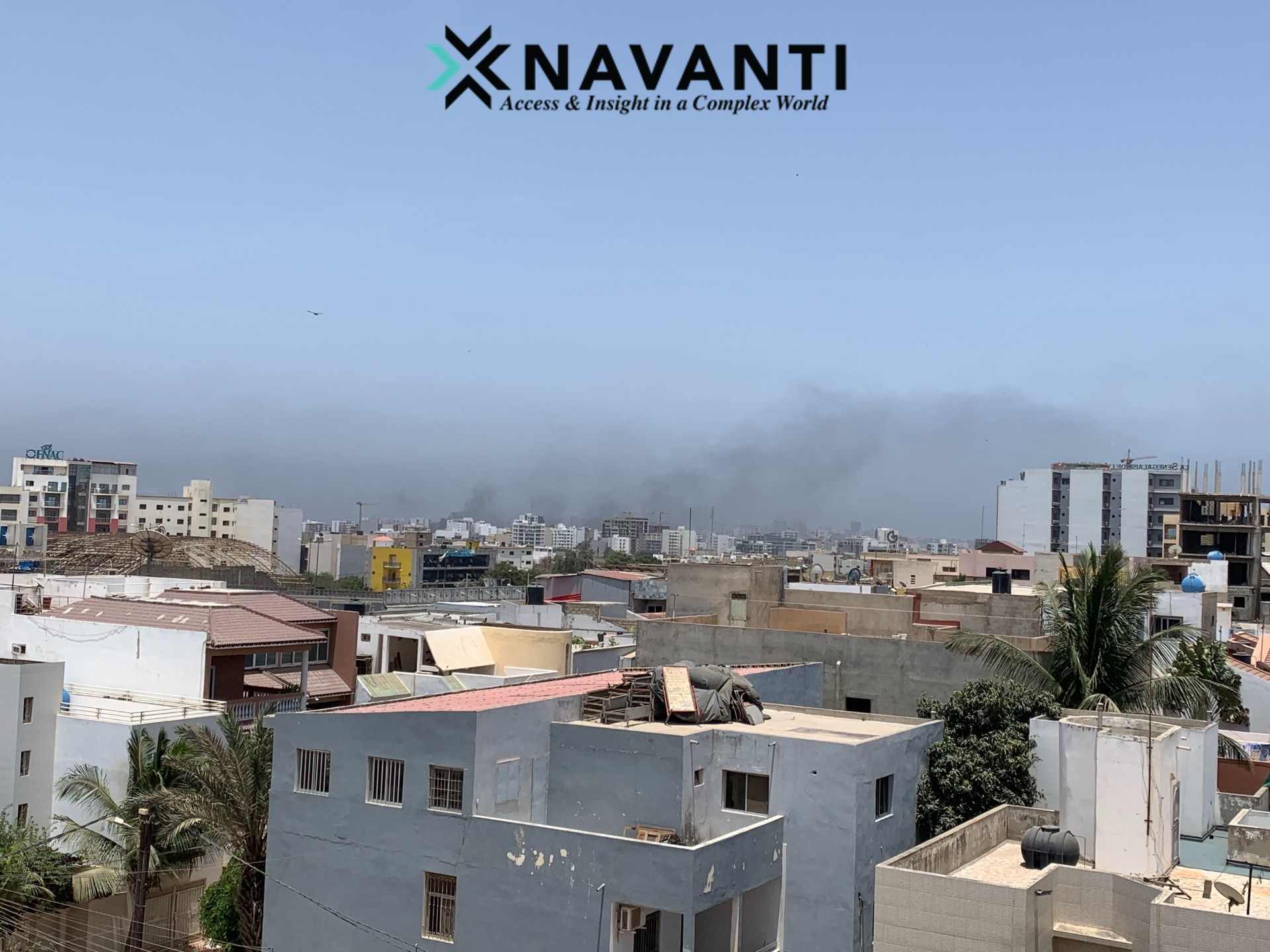Spot Report: Ousmane Sonko’s Supporters Rally in Senegal Amidst Controversial Verdict by Amber Liskey
 Senegal is once again witnessing widespread protests as supporters of Ousmane Sonko, the main opposition leader and critic of President Macky Sall, take to the streets following a controversial verdict in a rape case against the politician. The case, which Sonko claims is politically motivated to hinder his candidacy in the upcoming 2024 presidential elections, has resulted in his acquittal of rape but conviction on charges of “corrupting youth.” This ruling not only threatens Sonko’s personal freedom but also raises questions about his eligibility to run for president.
Senegal is once again witnessing widespread protests as supporters of Ousmane Sonko, the main opposition leader and critic of President Macky Sall, take to the streets following a controversial verdict in a rape case against the politician. The case, which Sonko claims is politically motivated to hinder his candidacy in the upcoming 2024 presidential elections, has resulted in his acquittal of rape but conviction on charges of “corrupting youth.” This ruling not only threatens Sonko’s personal freedom but also raises questions about his eligibility to run for president.
In 2021, Ousmane Sonko was accused of raping a woman employed at a beauty salon. Denying the charges, Sonko alleged that the accusations were politically motivated to impede his bid for the presidency and has repeatedly called on his supporters to take to the streets, leading to violent confrontations with security forces on several occasions. The case has sparked significant controversy and divided public opinion, pitting supporters of Sonko and those of Macky Sall against each other. At the same time, President Macky Sall has withheld his intentions to run for a controversial third term in the upcoming elections, adding fuel to the fire. Largely missing from the public discourse around the case has been the issue of women’s rights and rights of victims of sexual violence, to the dismay of rights activists.
On June 1, 2023, the court acquitted Sonko of rape but found him guilty of “corrupting youth”, a lesser offense than rape in Senegal, but a charge which has landed the politician a two-year prison sentence. Furthermore, Sonko was not physically present during the trial, meaning he cannot currently appeal his sentence, although his legal team has expressed their intention to explore other legal remedies.
The announcement of the verdict ignited widespread unrest across the capital, Dakar, with plumes of smoke engulfing the sky as protesters flooded the streets. Sonko’s supporters vehemently denounce the charges against him, asserting their belief in his innocence and vowing to fight for his freedom. Lawyers of the victim, on the other hand, expressed satisfaction with the conviction, but were hoping for a 10-year prison sentence for Sonko. The ongoing demonstrations illustrate the deep divisions within Senegalese society.
Beyond the immediate impact on Sonko’s personal fate, this verdict holds significant political ramifications for Senegal. As a prominent opposition figure, Sonko had emerged as a strong contender for the 2024 presidential elections, challenging the ruling party’s incumbent President Macky Sall. With his sentencing, questions arise regarding the fairness and impartiality of the legal process, leading to concerns about the potential curtailment of political dissent and opposition voices in the country. President Macky Sall was accused of using similar tactics to silence political opponents when the top two opposition figures were jailed and barred from running in the 2019 presidential elections, accusations that his party has denied.
Since independence in 1960, Senegal has known only peaceful transfers of power between presidents; however, there have only been three in over 60 years. First President, Leopold Senghor, ruled for 20 years and was succeeded by his Prime Minister Abdou Diouf, who also ruled for 20 years; longtime opposition candidate Abdoulaye Wade ruled for 12 years, before being pushed out of office while trying to revise the constitution’s term limits, and was then succeeded by his protegé, current President Macky Sall. The consolidation of power among a small elite has meant that despite numerous political parties, coalescence of political opposition remains a challenge.
The aftermath of the rape case against Ousmane Sonko has plunged Senegal into a state of unrest and uncertainty. Supporters of the opposition leader rally passionately behind him, denouncing the charges as politically motivated and demanding his release. The verdict, which acquitted Sonko of rape but sentenced him on other charges, threatens his political career and raises broader questions about the country’s judicial system and the state of democracy in Senegal. As tensions remain high, the future of both Ousmane Sonko and the nation hangs in the balance, awaiting further legal developments and potential political implications.

